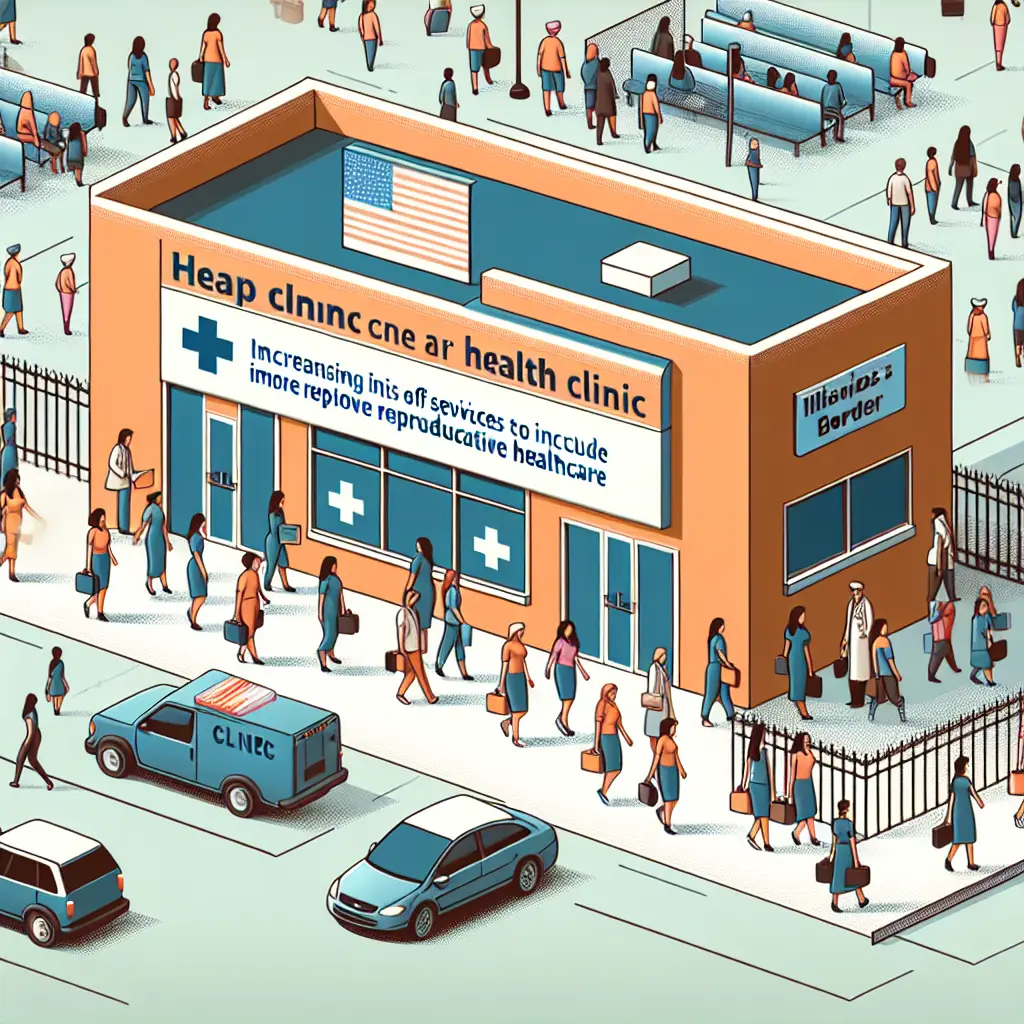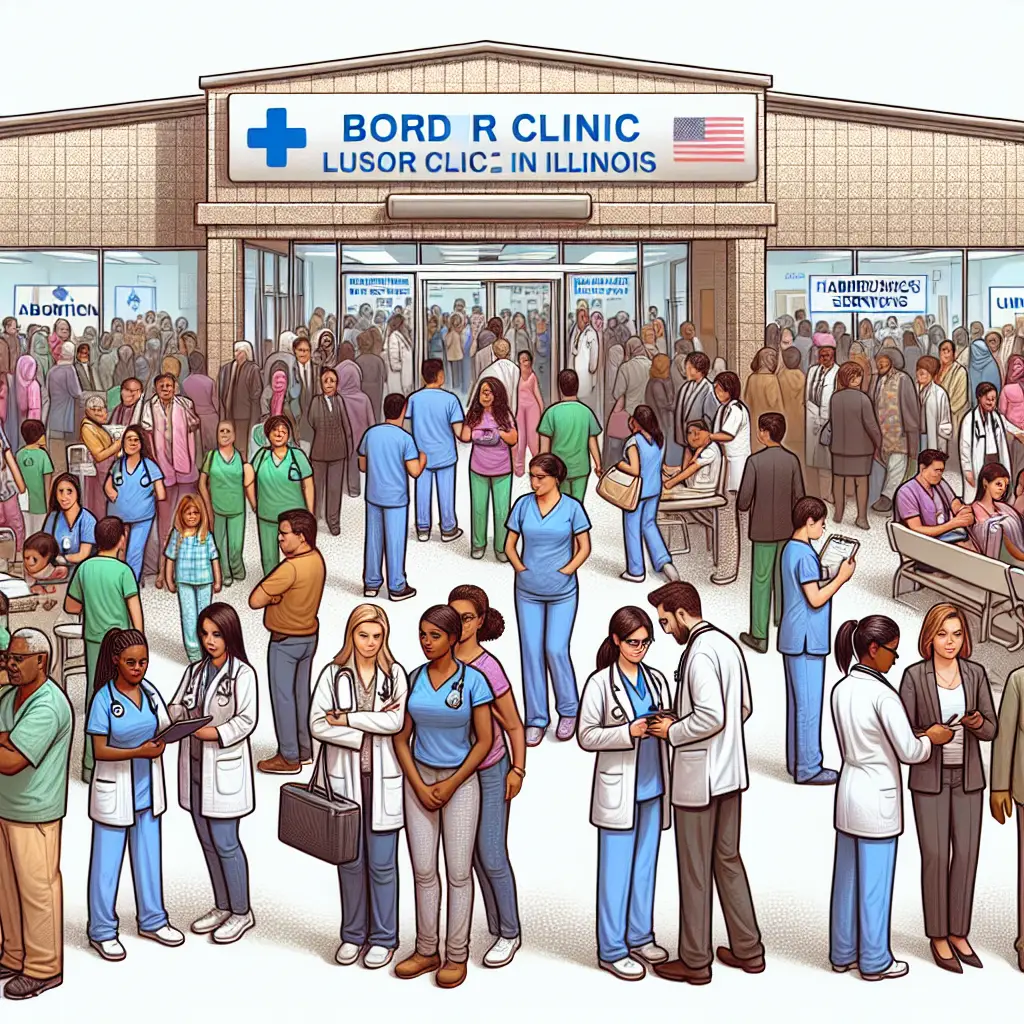-
Table of Contents
- Surge in Illinois Border Clinic Visits as Abortion Providers Expand Healthcare Services
- Factors Driving the Surge in Border Clinic Visits
- Legislative Changes and Their Impact
- Increased Demand for Comprehensive Healthcare
- Strategic Positioning of Clinics
- Types of Services Offered by Expanded Healthcare Clinics
- Abortion Services
- Family Planning and Contraception
- Prenatal and Postnatal Care
- General Health Screenings
- Broader Implications for Healthcare Access
- Improved Access to Care
- Economic Impact on Local Communities
- Challenges and Controversies
- Frequently Asked Questions (FAQ)
- Why are more patients visiting Illinois border clinics?
- What types of services do these clinics offer?
- How has the surge in visits impacted local communities?
- Conclusion
Surge in Illinois Border Clinic Visits as Abortion Providers Expand Healthcare Services

In recent years, Illinois has seen a significant increase in border clinic visits, particularly as abortion providers expand their healthcare services. This trend is driven by a combination of legislative changes, increased demand for comprehensive healthcare, and the strategic positioning of clinics near state borders. This article delves into the factors contributing to this surge, the types of services offered, and the broader implications for healthcare access in the region.
Factors Driving the Surge in Border Clinic Visits
Legislative Changes and Their Impact
One of the primary drivers of increased border clinic visits in Illinois is the legislative landscape in neighboring states. States with more restrictive abortion laws have pushed residents to seek services in Illinois, where regulations are comparatively more lenient. This has led to a noticeable uptick in out-of-state patients seeking not only abortion services but also other healthcare services offered by these clinics.
Increased Demand for Comprehensive Healthcare
Abortion providers in Illinois have expanded their range of services to include comprehensive healthcare options. This includes family planning, prenatal care, and general health screenings. The expansion of services has made these clinics a one-stop-shop for many patients, further driving the increase in visits.
Strategic Positioning of Clinics
Many clinics have strategically positioned themselves near state borders to better serve out-of-state patients. This strategic placement not only makes it easier for patients to access services but also helps clinics tap into a broader patient base. The convenience of location has been a significant factor in the surge of border clinic visits.
Types of Services Offered by Expanded Healthcare Clinics
Abortion Services
While abortion services remain a core offering, many clinics have expanded their services to include a variety of healthcare options. This includes both medical and surgical abortions, with a focus on providing safe and accessible care.
Family Planning and Contraception
Family planning services, including contraception counseling and provision, are a significant part of the expanded services. Clinics offer a range of contraceptive options, from birth control pills to long-acting reversible contraceptives (LARCs) like IUDs and implants.
Prenatal and Postnatal Care
Recognizing the need for comprehensive reproductive healthcare, many clinics now offer prenatal and postnatal care. This includes routine check-ups, ultrasounds, and postpartum support, ensuring that patients receive continuous care throughout their pregnancy journey.
General Health Screenings
In addition to reproductive health services, many clinics have incorporated general health screenings into their offerings. This includes screenings for sexually transmitted infections (STIs), cancer screenings, and general wellness check-ups, providing a holistic approach to patient care.
Broader Implications for Healthcare Access
Improved Access to Care
The expansion of services and strategic positioning of clinics have significantly improved access to care for many patients. This is particularly true for those living in states with restrictive healthcare laws, who now have more options for receiving comprehensive care.
Economic Impact on Local Communities
The influx of out-of-state patients has also had an economic impact on local communities. Increased clinic visits mean more business for local hotels, restaurants, and other service providers, contributing to the local economy.
Challenges and Controversies
Despite the positive impacts, the surge in border clinic visits has not been without challenges and controversies. There are ongoing debates about the ethical implications of cross-state healthcare access and the strain on local healthcare resources. Additionally, clinics face logistical challenges in managing the increased patient load while maintaining high standards of care.
Frequently Asked Questions (FAQ)
Why are more patients visiting Illinois border clinics?
The increase in visits is primarily due to restrictive abortion laws in neighboring states, which drive patients to seek services in Illinois. Additionally, the expansion of comprehensive healthcare services at these clinics has made them more attractive to a broader patient base.
What types of services do these clinics offer?
In addition to abortion services, many clinics offer family planning, contraception, prenatal and postnatal care, and general health screenings. This comprehensive approach ensures that patients receive a wide range of healthcare services in one location.
How has the surge in visits impacted local communities?
The influx of out-of-state patients has had both positive and negative impacts on local communities. Economically, it has boosted local businesses, but it has also raised concerns about the strain on local healthcare resources and ethical considerations of cross-state healthcare access.
Conclusion
The surge in Illinois border clinic visits is a multifaceted issue driven by legislative changes, increased demand for comprehensive healthcare, and strategic clinic positioning. While this trend has improved access to care for many patients, it also presents challenges and controversies that need to be addressed. As abortion providers continue to expand their services, it will be crucial to monitor the long-term implications for both patients and local communities.
If you are seeking comprehensive healthcare services, consider exploring the options available at Illinois border clinics. Their expanded range of services and strategic locations make them a valuable resource for patients from both within and outside the state.








